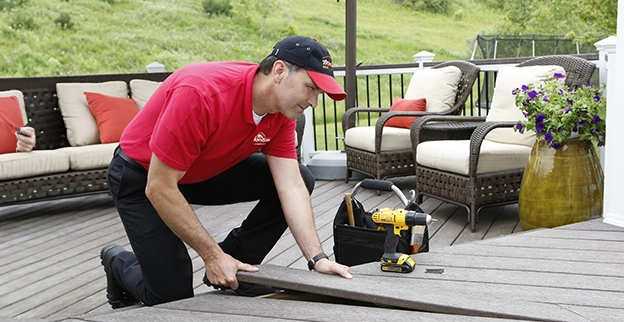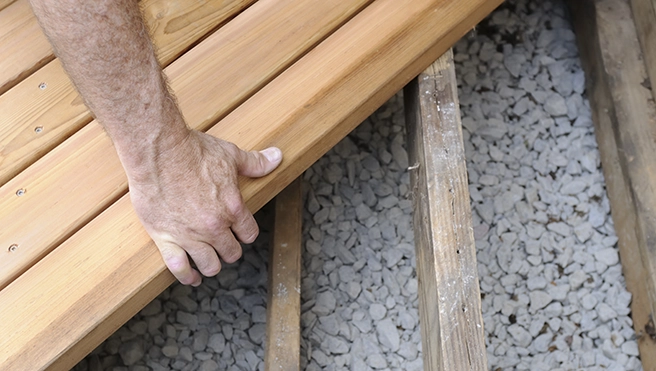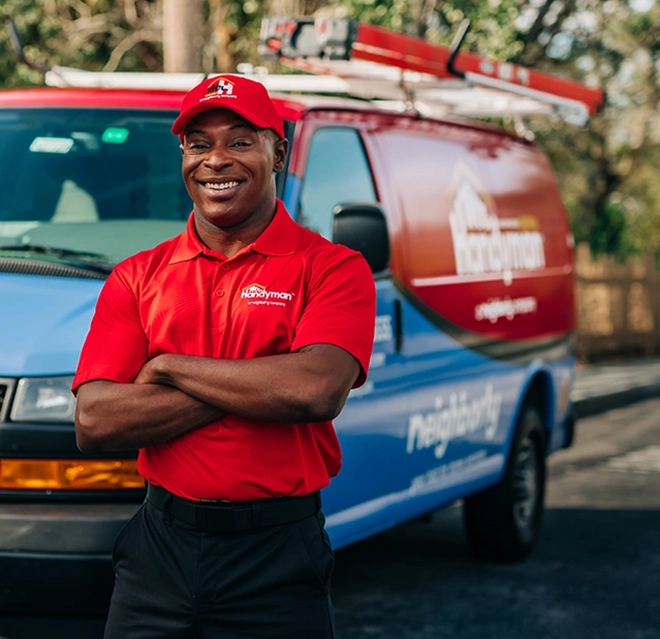Here are some of the more commonplace porch material types. Please note that most homeowners don’t usually opt for just one but pick and choose from the diverse palette for different areas of their homes. For example, concrete for their front porch and wood or fiberglass for their backyard deck. Depending on which type of porch material you opt for, will determine your level of effort and motivation required toward routine maintenance and as a result eventual Lehi porch repair services.
Wood/Pressure-Treated Wood:
There are three popular choices for wood porches: redwood, cedar, or pressure-treated. Pressure-treated is one of the most requested. It’s resistant to rot and decay and will outlast purely natural and untreated wood, so it’s a cost-effective option. Plus, it can readily repel insects and is moisture, fungal, and fire-resistant compared to conventional wood. The only drawback is that it’s more susceptible to sun damage, including harmful direct exposure to UVB and UVA sunlight. So if you’re not keen on annual maintenance, it can change color, crack, warp, and shrink. And of course, wood is always vulnerable to rot from mold and mildew growth when not taken care of.
Natural Stone:
Another durable and environmentally-friendly and sustainable material, natural stone is durable, has low maintenance, and boosts your home’s curb appeal with its timeless elegance. But it can be incredibly expensive being a natural or organic option, and you must participate in routine maintenance, for example, natural stone pavers begin to crack about 5 to 10 years in and need to be fixed with a Lehi porch repair service.
Steel:
Not as common but definitely sturdy steel does well against moisture absorption, is lightweight, easy to install, and handles high amounts of weight and pressure. It’s also fire-resistant and a cost-effective option. A drawback, however, is that you have to participate in maintenance through regular cleanings, including an occasional power washing service if you outrightly ignore this chore, your porch will quickly rust over. Corrosion is usually the result of prolonged exposure to liquid moisture, oxygen, and fluctuating temperatures. If your porch is rusty, you may see leakages on its surface.
Aluminum:
Another common request, aluminum doesn’t easily crack, warp or rust, unlike generic wood, and it’s mold-resistant as well. Plus, it’s lightweight and more durable. One drawback is that it may cause noise pollution at the mercy of heavy footsteps and foot traffic and doesn't bode well in winter as its surface can glaze over and become slippery compared to other materials.
Fiberglass:
You’ve probably seen this fashionable material on the back porch of many houses, and it's known for its waterproof coating, is lightweight, has low-key maintenance, plus has durability and longevity compared to other materials. But as much as it looks fanciful, the only drawback is if one of the boards on the porch cracks, it can’t easily be repaired. Fiberglass is not a material that can be repaired or restored without great difficulty, explaining why we see damaged fiberglass boards in landfills.
Concrete:
This is a popular option for a front porch and is durable, versatile, easy to maintain, and affordable, offering a great bang for its buck due to needing fewer porch repairs and can last you up to 30 years. Plus it wards off any curious critters that decide to make the underside of your porch their home like stray cats, or snooping squirrels and sneaky skunks. You won’t need porch repair Lehi, UT homeowners should note however it does have a higher upfront installation cost, nor is it made of natural-based material, unlike wood. And also, it’s not as comfortable to physically sit on top of compared to other porch materials as concrete can readily get hot to the touch in summer and ice frozen during winter.
Vinyl:
Also known as plastic, vinyl is durable, doesn’t easily warp, fade, buckle or splinter at the first signs of fluctuating temperature or pressure and has a wide range of customization options. For example, you can opt for the distinct and rustic look of a wood-grain palette and mimic the real look of wood without it being real wood which requires more maintenance. But a drawback is that it is pricier to install upfront and unlike biodegradable wood, the sawdust and shavings from finishing a vinyl porch are not and have to be carefully removed to not decompose in the natural environment. So if you’re a nature nut or at least into adopting an environmentally friendly lifestyle by reducing your eco-footprint, we would not recommend this option.


